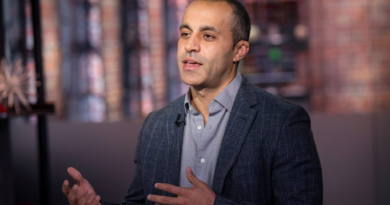Young adults are getting cold feet about their highly anticipated $84 trillion wealth transfer
Objects in the mirror are closer than they appear. Whether it be a dinosaur that Jeff Goldblum is dodging or a colossal inheritance, things tend to creep up faster than projected. Even when the change is good or highly-anticipated, it can make people get a little anxious or feel overwhelmed.
This much is true for the long-expected great wealth transfer, wherein a hefty sum of $84.4 trillion dollars is expected to move to younger hands by 2045 , per a report from Cerulli Associates. Most of those funds, $72.6 trillion, are to be gifted to heirs, with $11.6 trillion going to charity. Boomers are projected to give away the bulk of this fortune, at around 63%. Gen Xers are predicted to inherit the most, followed closely by millennials, and then Gen Zers, according to Merrill Lynch.
Younger generations, in a particular economic bind as they navigate student loans, a volatile housing market, and years of inflation, stand to gain the most from this transfer. And affluent millennials might make more than anyone else, as the cohort is predicted to be the “richest generation in history” after this transfer, according to real estate consultancy Knight Frank.
But even if younger generations are awaiting money, some are starting to feel a bit ambivalent about its impending arrival. Most Americans (72%) report feeling that they don’t have enough financial confidence to manage a large influx of money by themselves, according to a Citizens Bank survey of 1,500 U.S. adults.
“Our findings reveal a significant gap in preparedness among many families, including millennials, who lack confidence in managing substantial financial windfalls,” Brendan Coughlin, vice chair and head of consumer banking for Citizens, tells Fortune. He adds that millennials in particular should consider their long-term financial goals and familiarize themselves with fundamentals of finances like investing and budgeting so they can make informed choices about their potential inheritance.
Of course, there’s a story of inequality at play, as not all boomers are wealthy. Many struggle to afford retirement and fear outliving their savings. A large portion of the wealth transfer — $35.8 trillion or 42% — is projected to come from extremely wealthy individuals that make up just 1.5% of households, per Cerulli Associates.
Even so, the few that get an inheritance are unsure of how to handle their new net worth. While most Americans would turn to an advisor in the case of receiving an inheritance, 29% said they would only consult someone if they inherited $1 million or more. With the overwhelming majority of Americans distrustful of bankers, many (51%) Americans are going to social media for financial advice and even more (61%) are turning to A.I.
“Millennials, and now Gen Z, have grown up amidst global and financial turmoil,” Suzanne Schmitt, head of financial wellness at New York Life, previously told Fortune, pointing to the financial crisis of 2008 and the pandemic hardships. “These two cohorts have witnessed economic changes in their formative years and may be more risk-averse when it comes to financial habits than their predecessors.”
It seems like young adults are more likely to turn to social media than an advisor, adds Citizens. And young adults are especially likely to report having received bad advice after receiving an inheritance. The growing reliance on social media for help is a double-edged sword. “Social media has significantly reshaped how young people approach investing and saving, offering both advantages and drawbacks,” says Coughlin. While social media can create a community for learning about finances and democratize knowledge, it also “can be fraught with misinformation and scams, leading to risky financial decisions,” he says.
Citizens finds that 31% of Americans feel that it’s “likely or extremely likely” they’ll receive an inheritance within the next five years, increasing to 55% of millennials and 41% of Gen Zers, “creating a sense of urgency to prepare financial plans for the largest transfer of assets in U.S. history,” adds Coughlin.
Whether they’re on TikTok or not, young adults are awaiting a windfall that might be more of a breeze than a gust. Recent experts have suggested that the transfer is a long way from coming, as boomers live longer and inheritance often doesn’t set in until recipients are middle-aged. And when the inheritance does come in it may well fall short of recipients’ hopes, as new research shows that millennials expect more than baby boomers plan on leaving.
Young adults’ anxiety regarding an incoming inheritance has been also covered by a 2024 report from New York Life. The insurance company found that only 42% of the 15% of adults that expected an inheritance said they “feel very comfortable financially handling the new wealth.” Confidence decreased by generation as millennials and Gen Zers were the least assured, at 21% and 18%, respectively.
But even if young adults have mixed feelings about this phenomenon, the boomer wealth transfer could have larger ripple effects across the country as hoarded wealth moves around. “This monumental shift represents not just a significant financial life event for families, but also the potential for economic stimulation as new wealth gets invested in areas like real estate, entrepreneurship and education,” says Coughlin.




